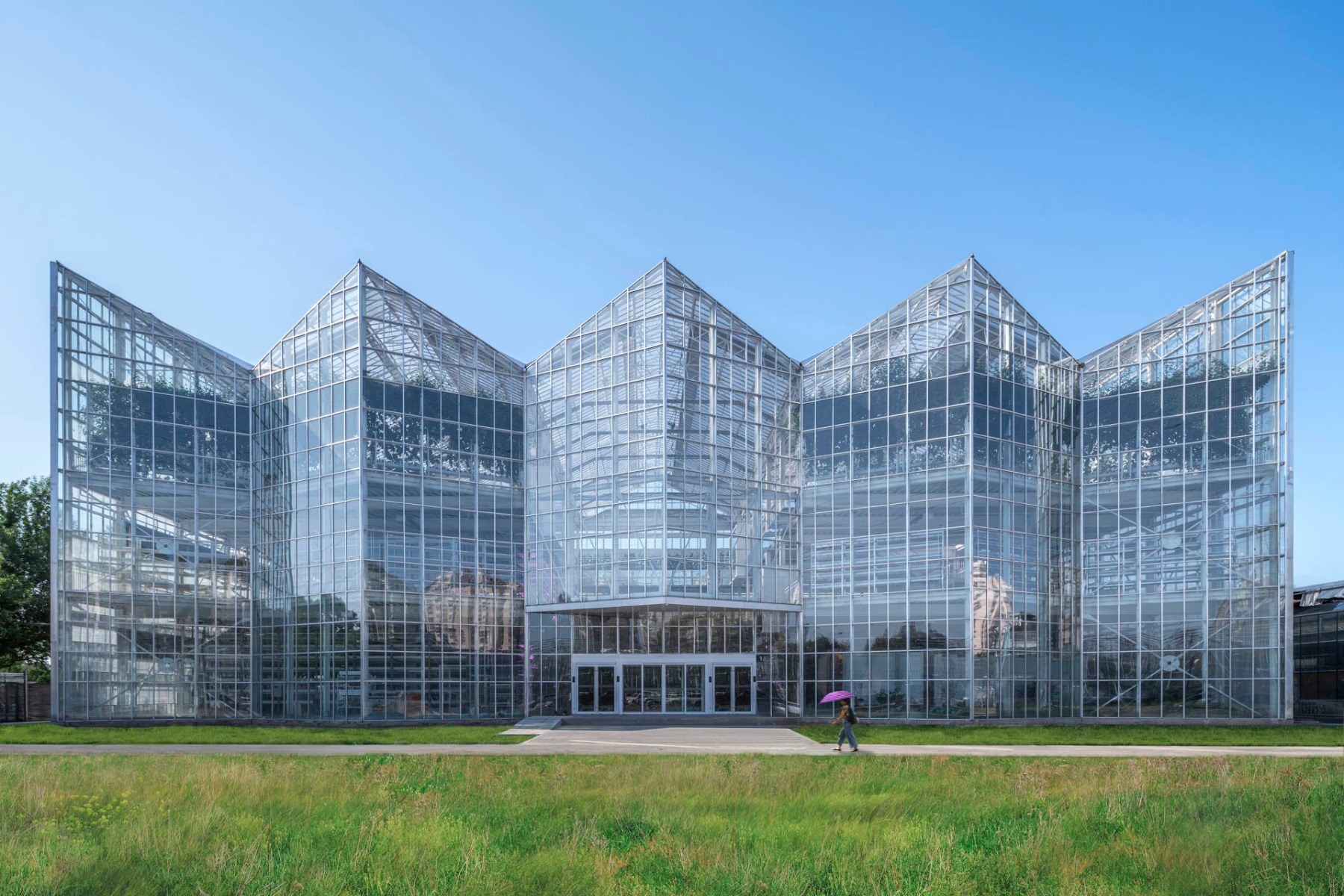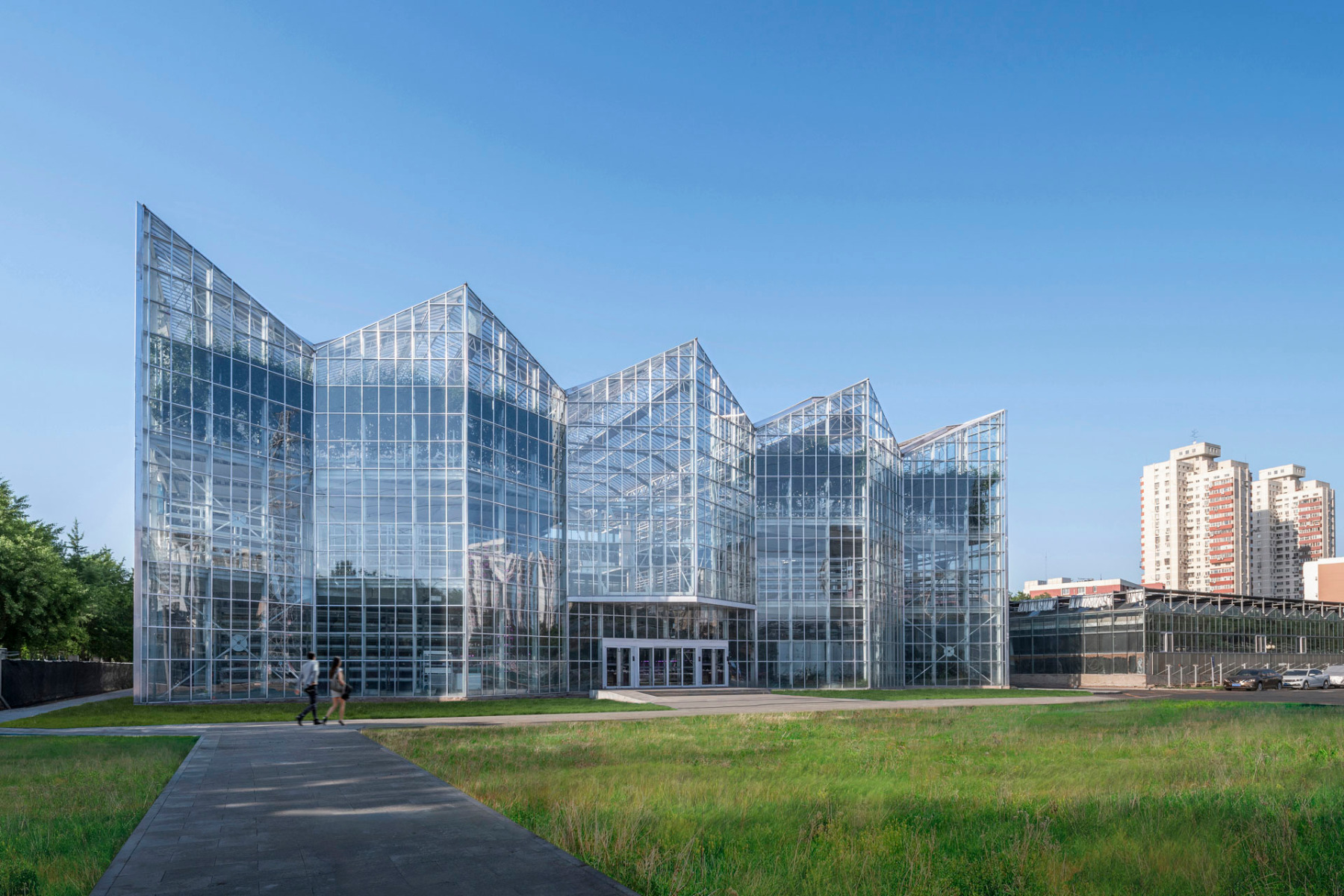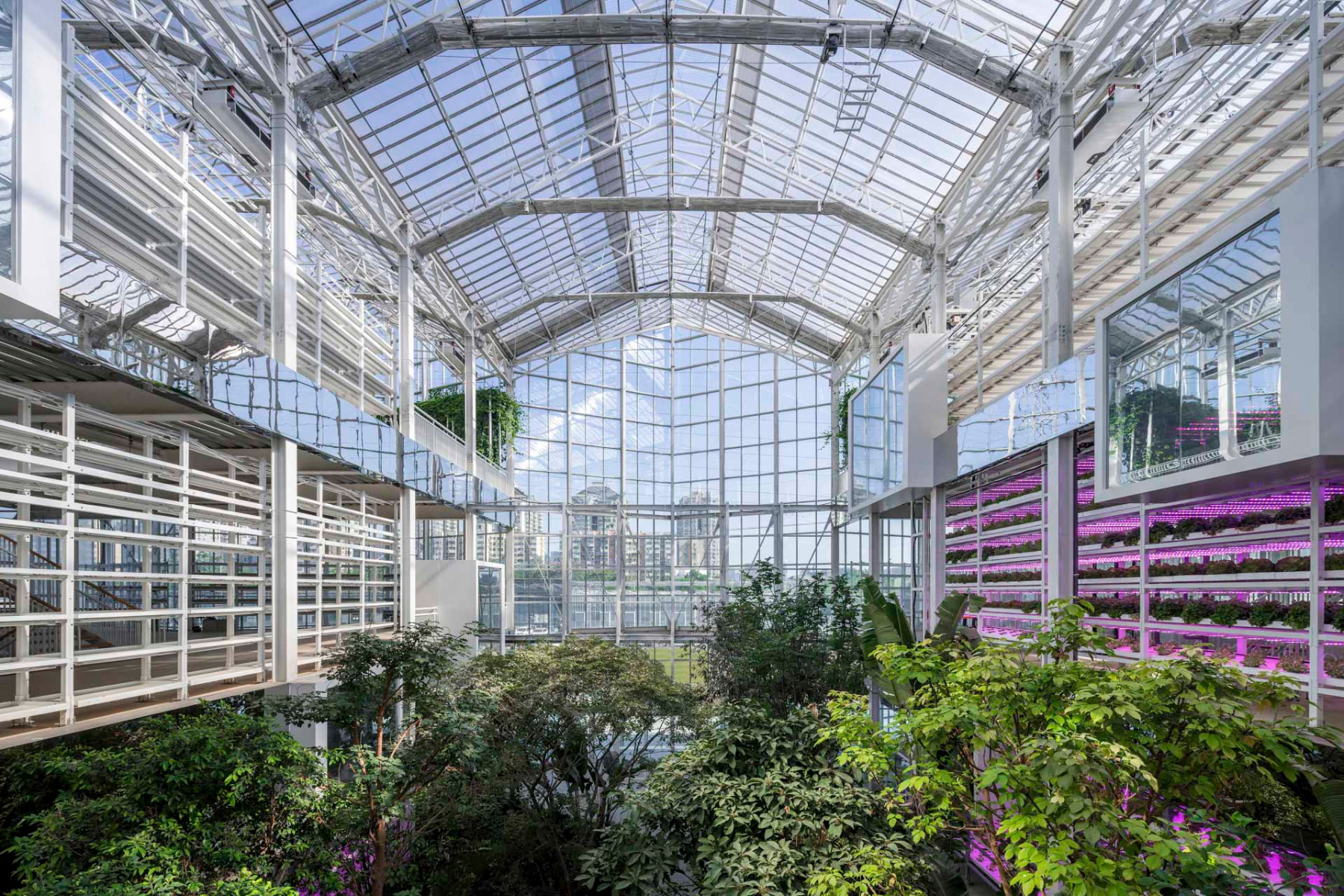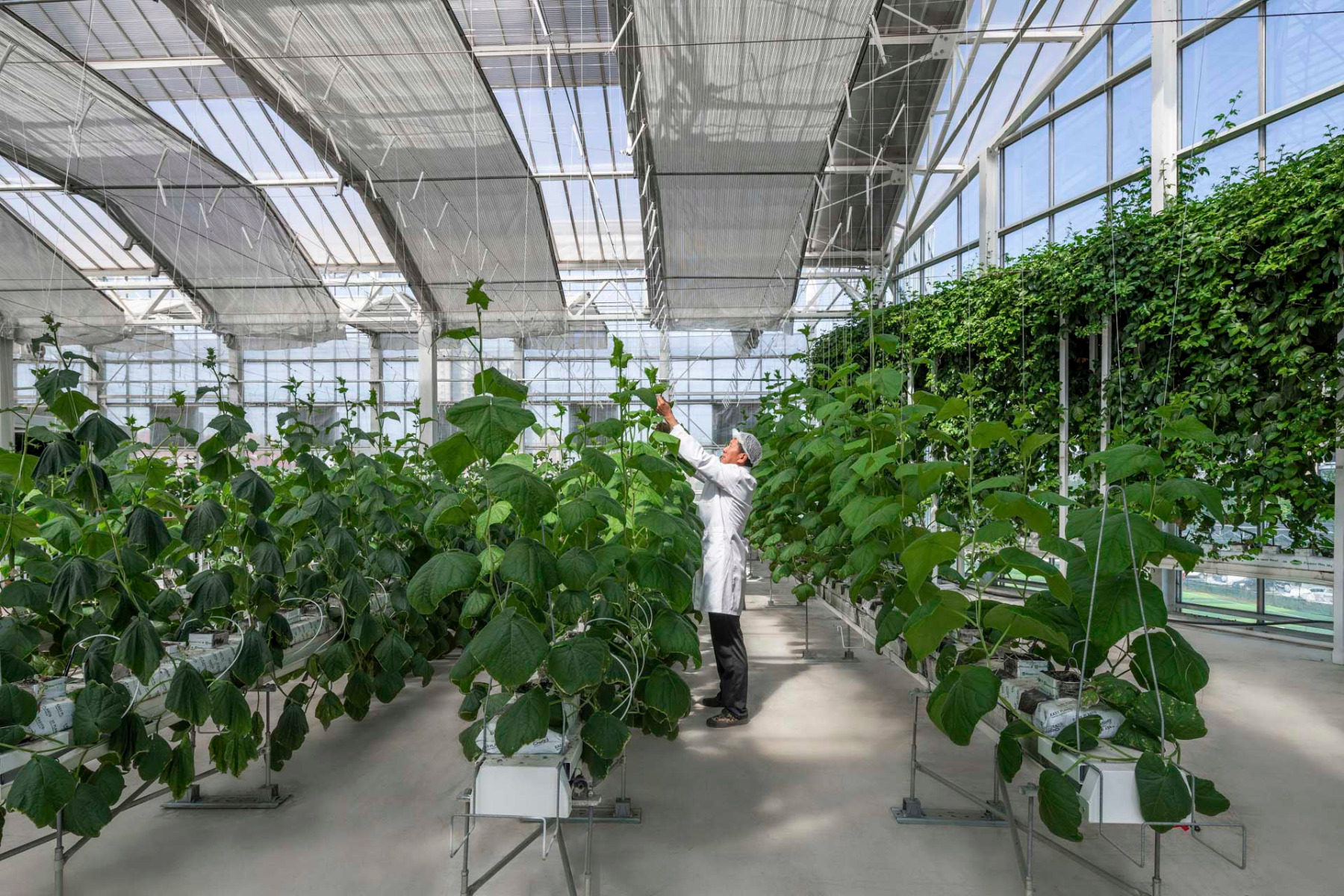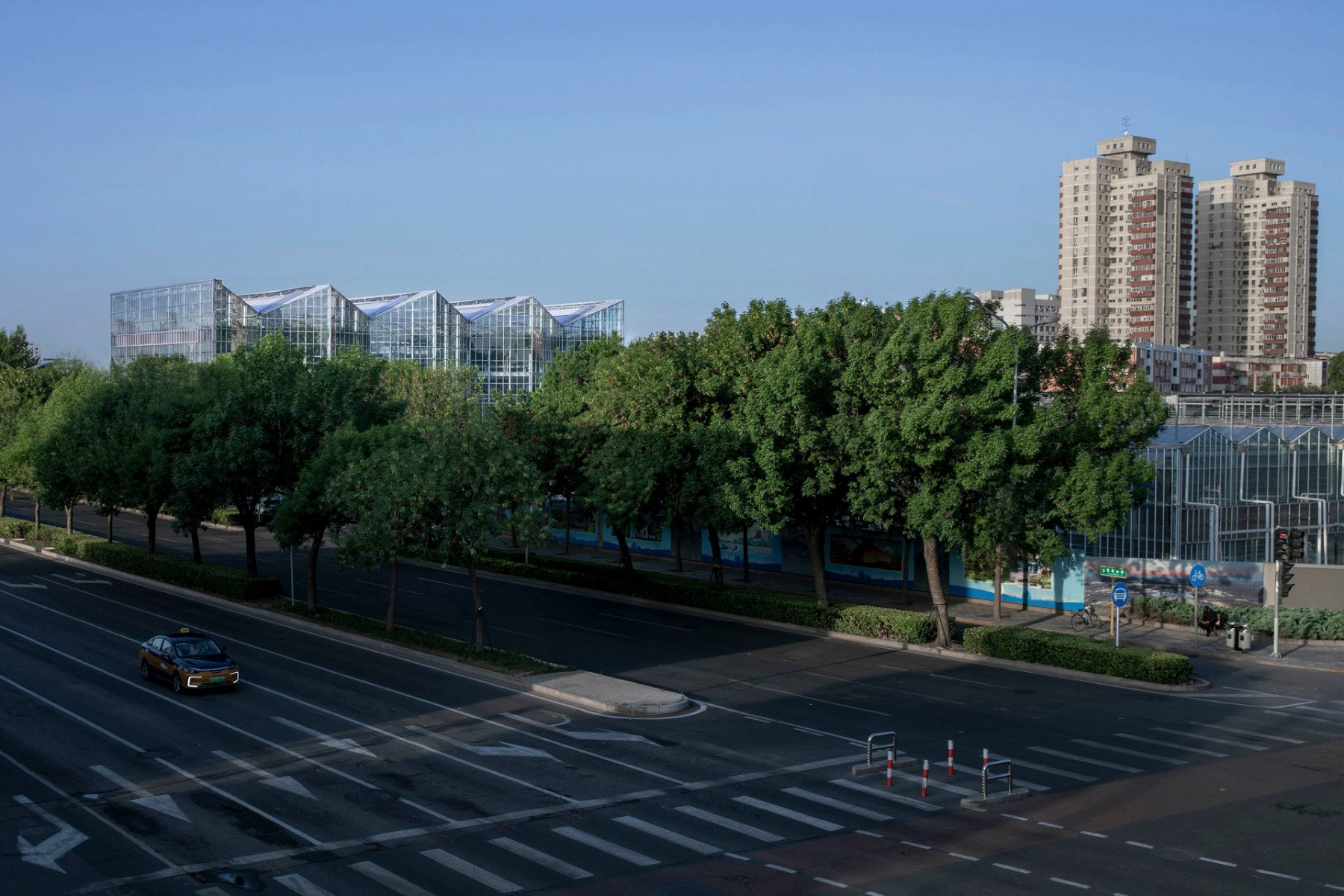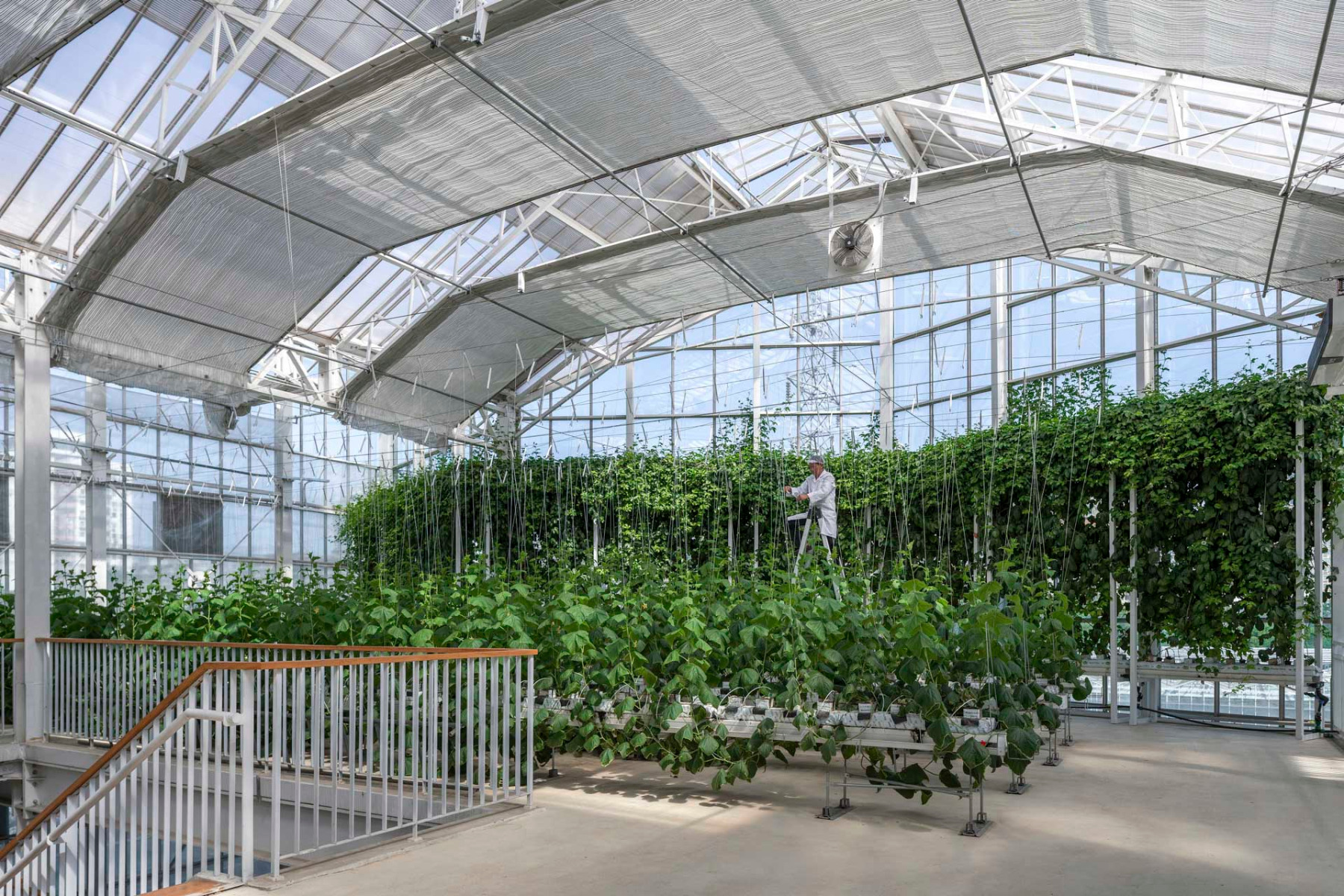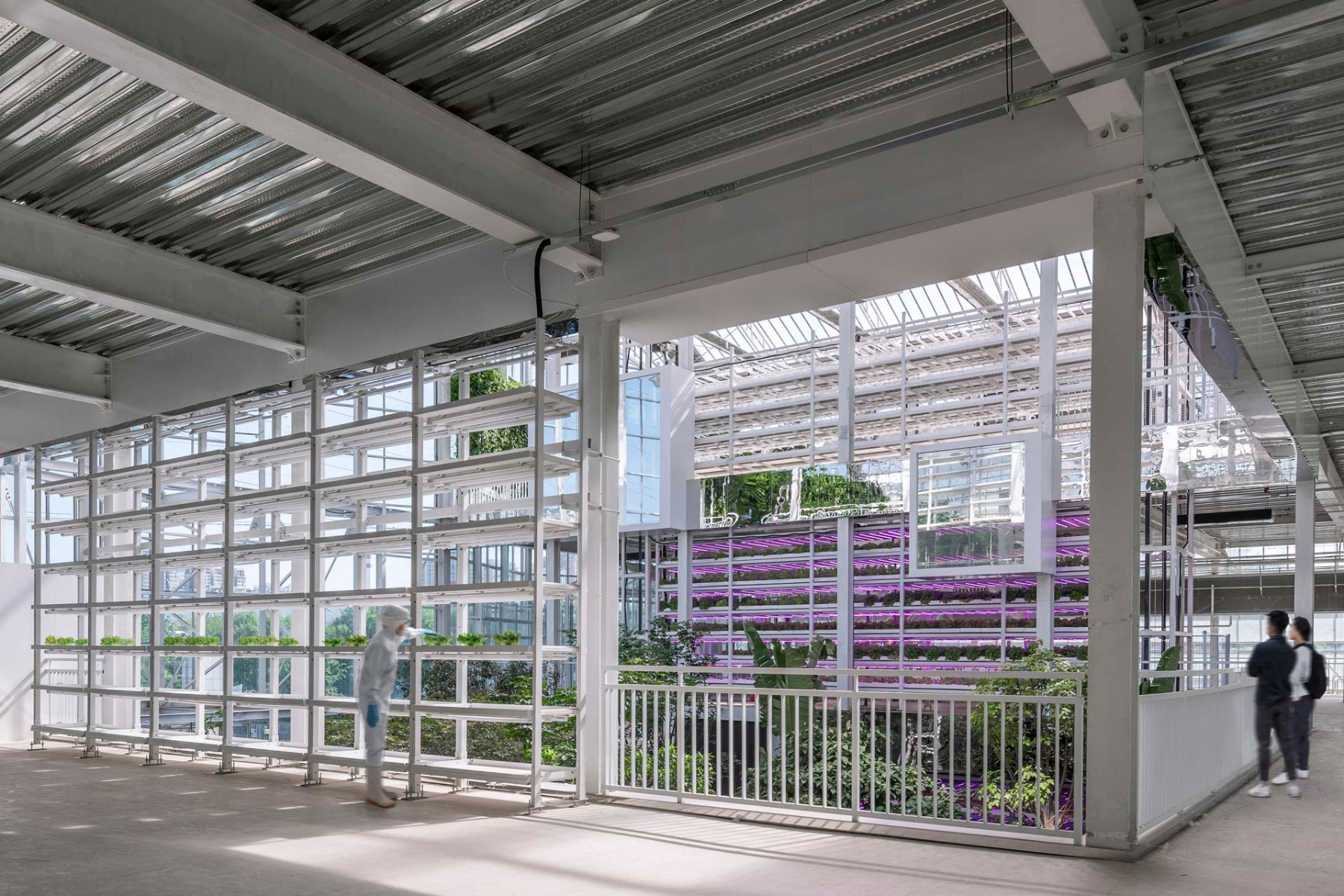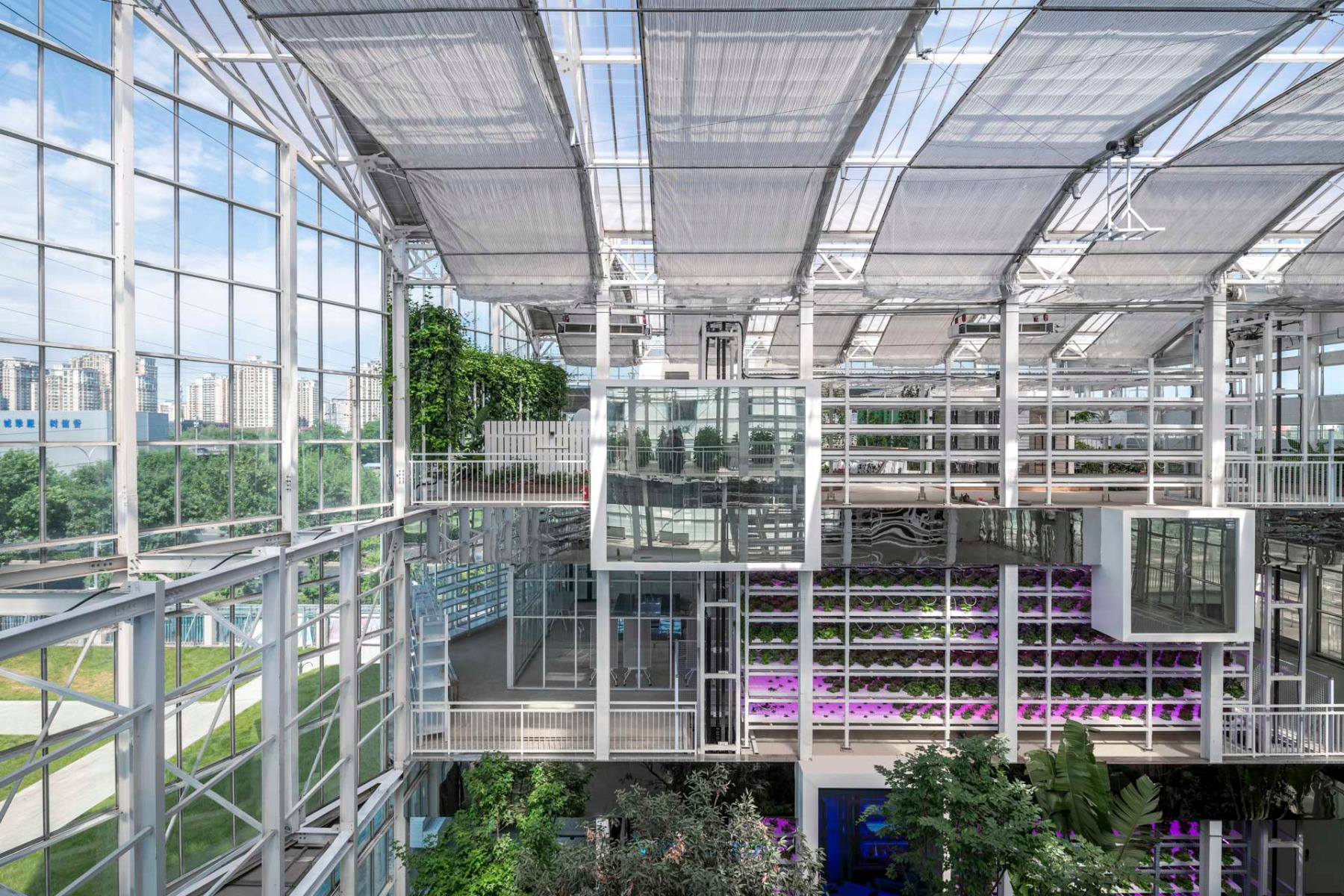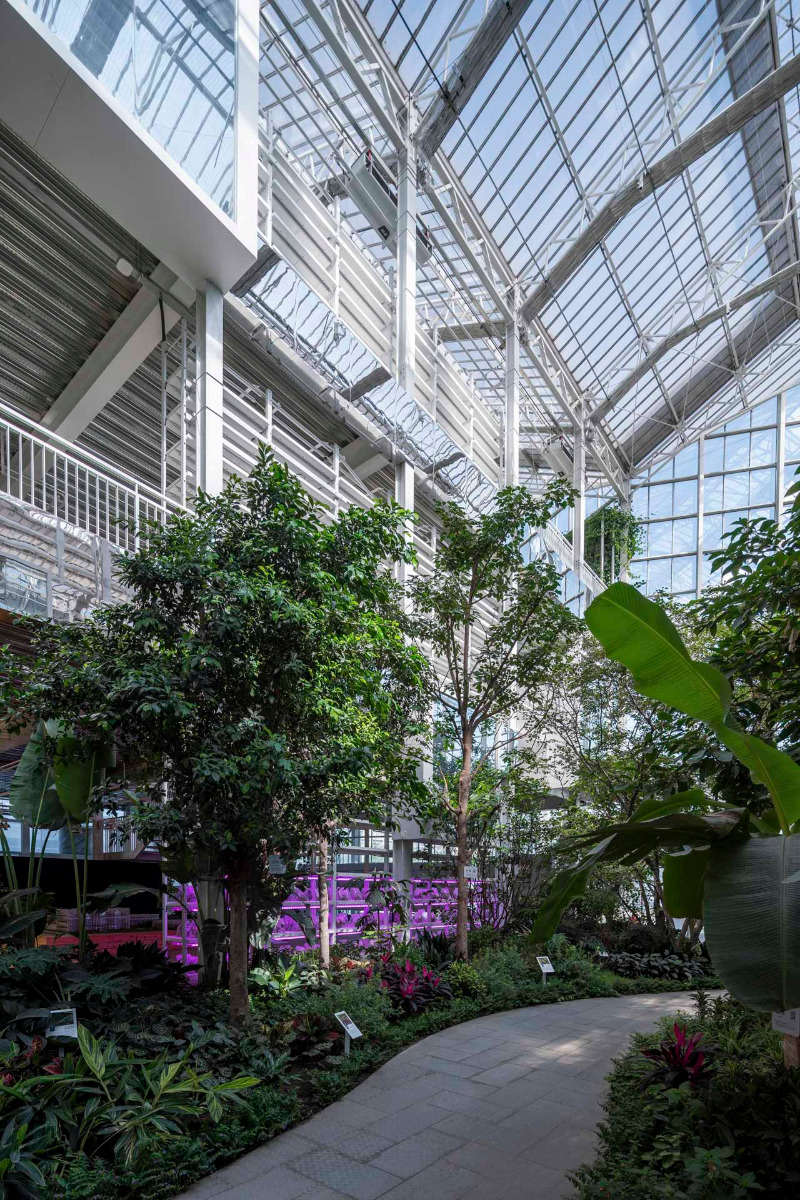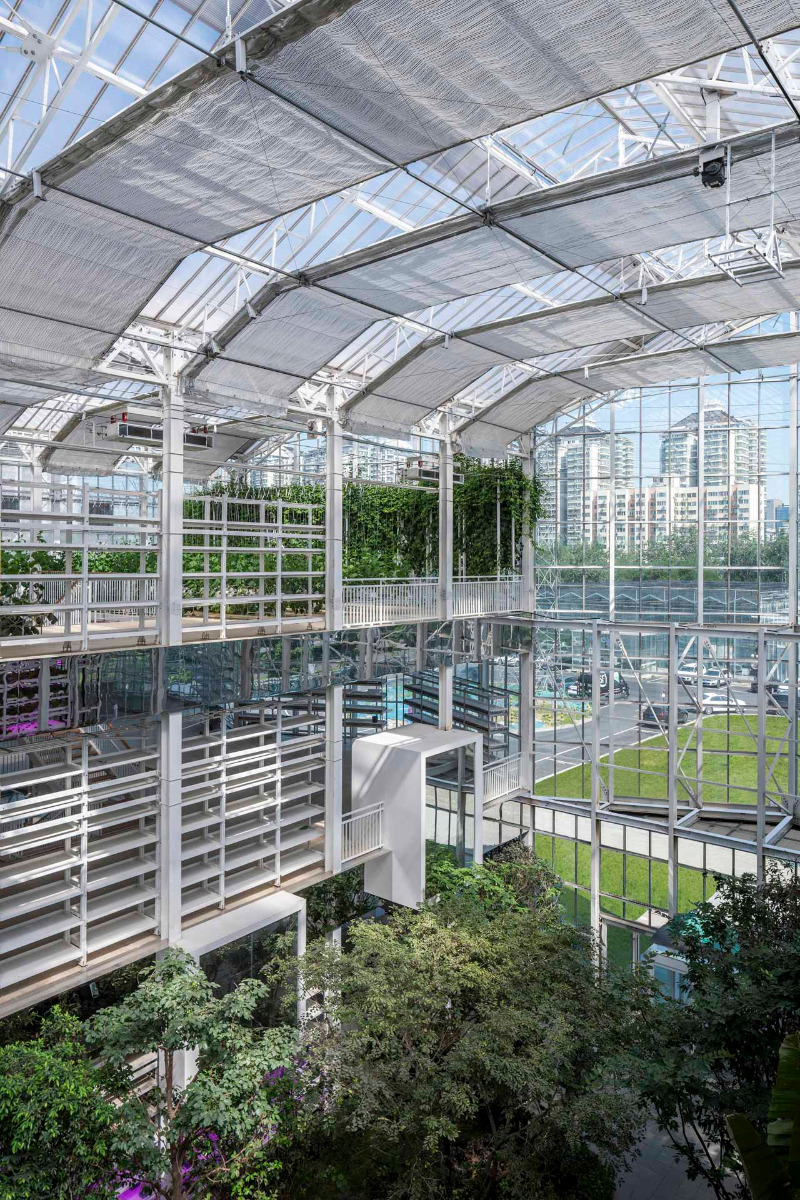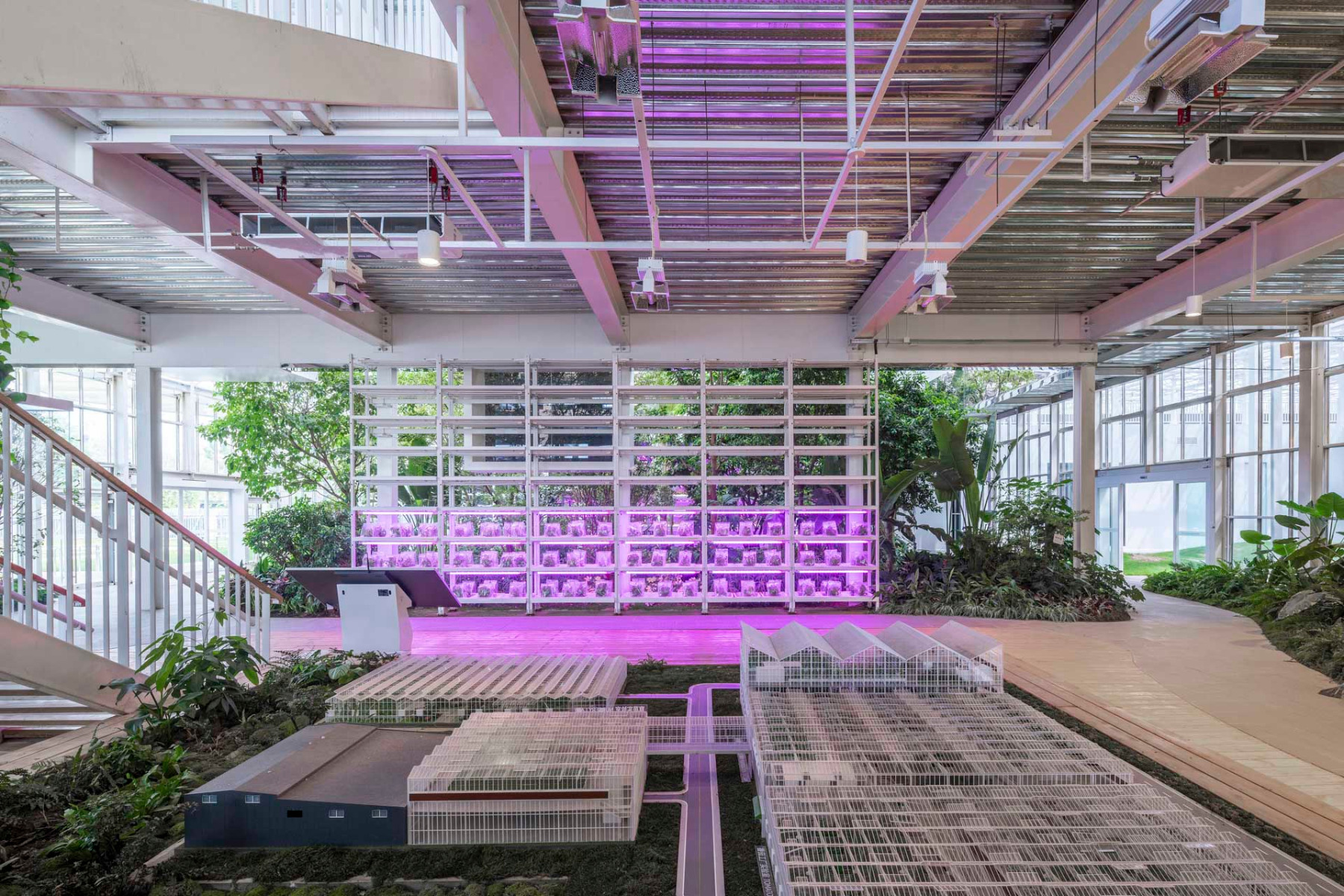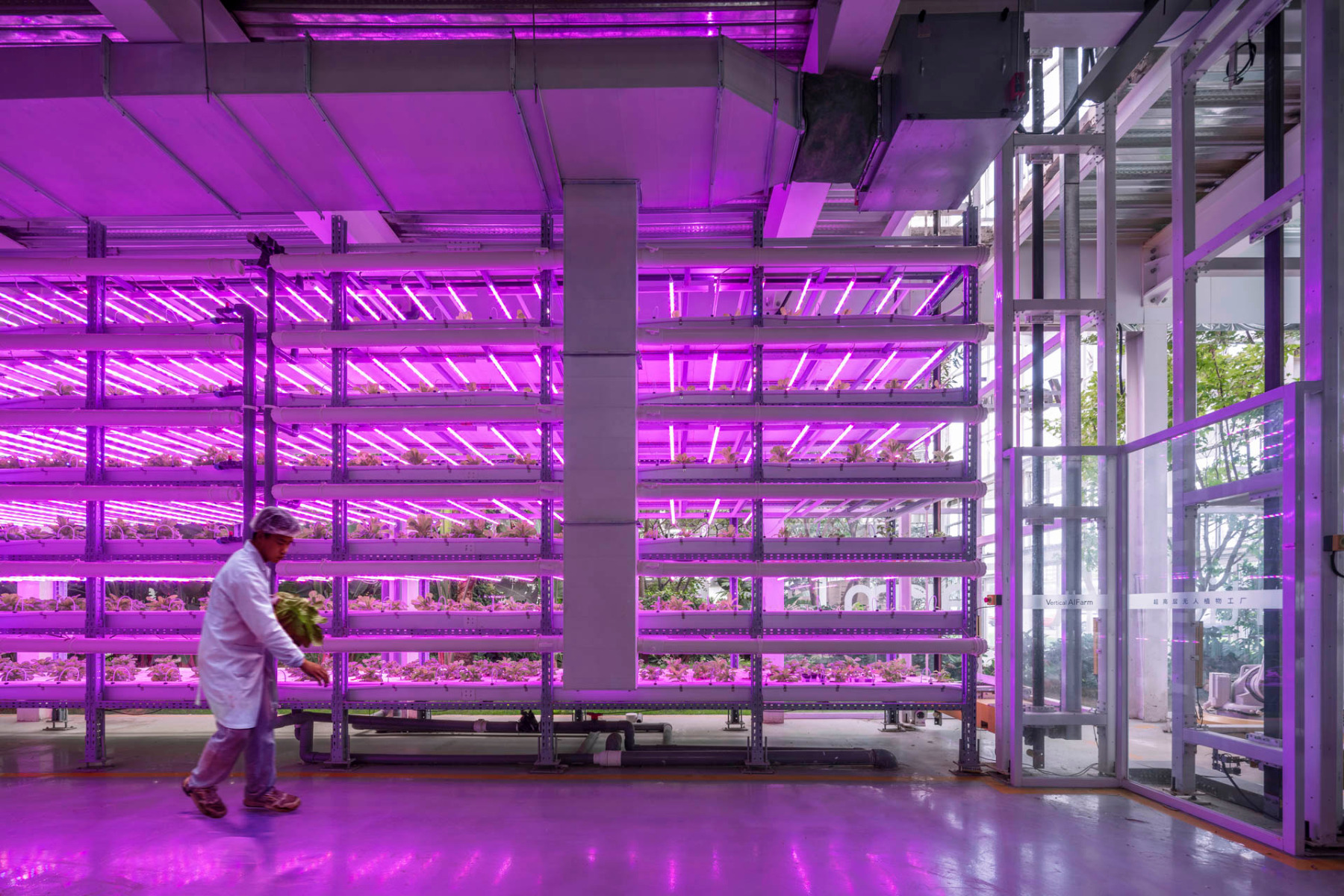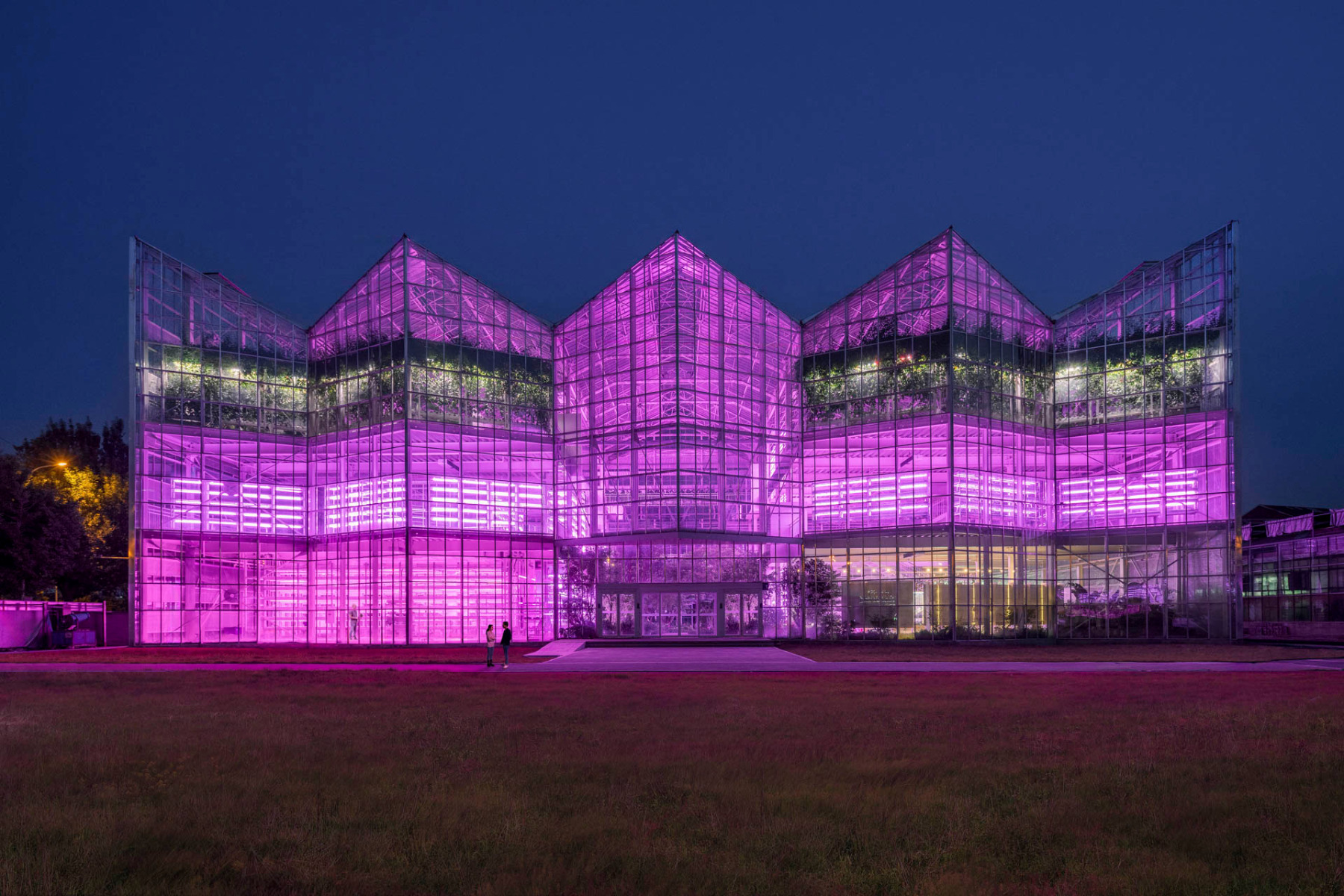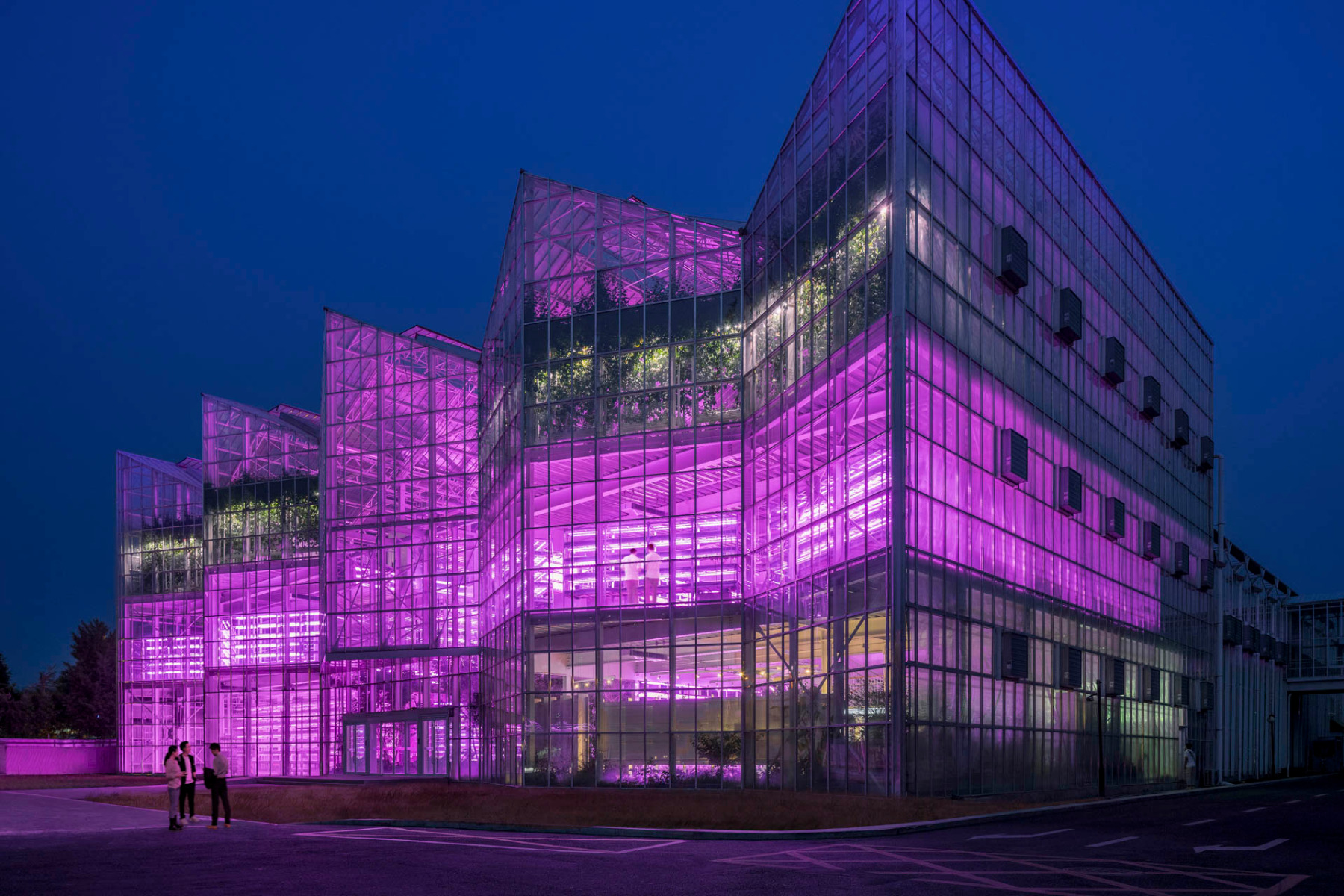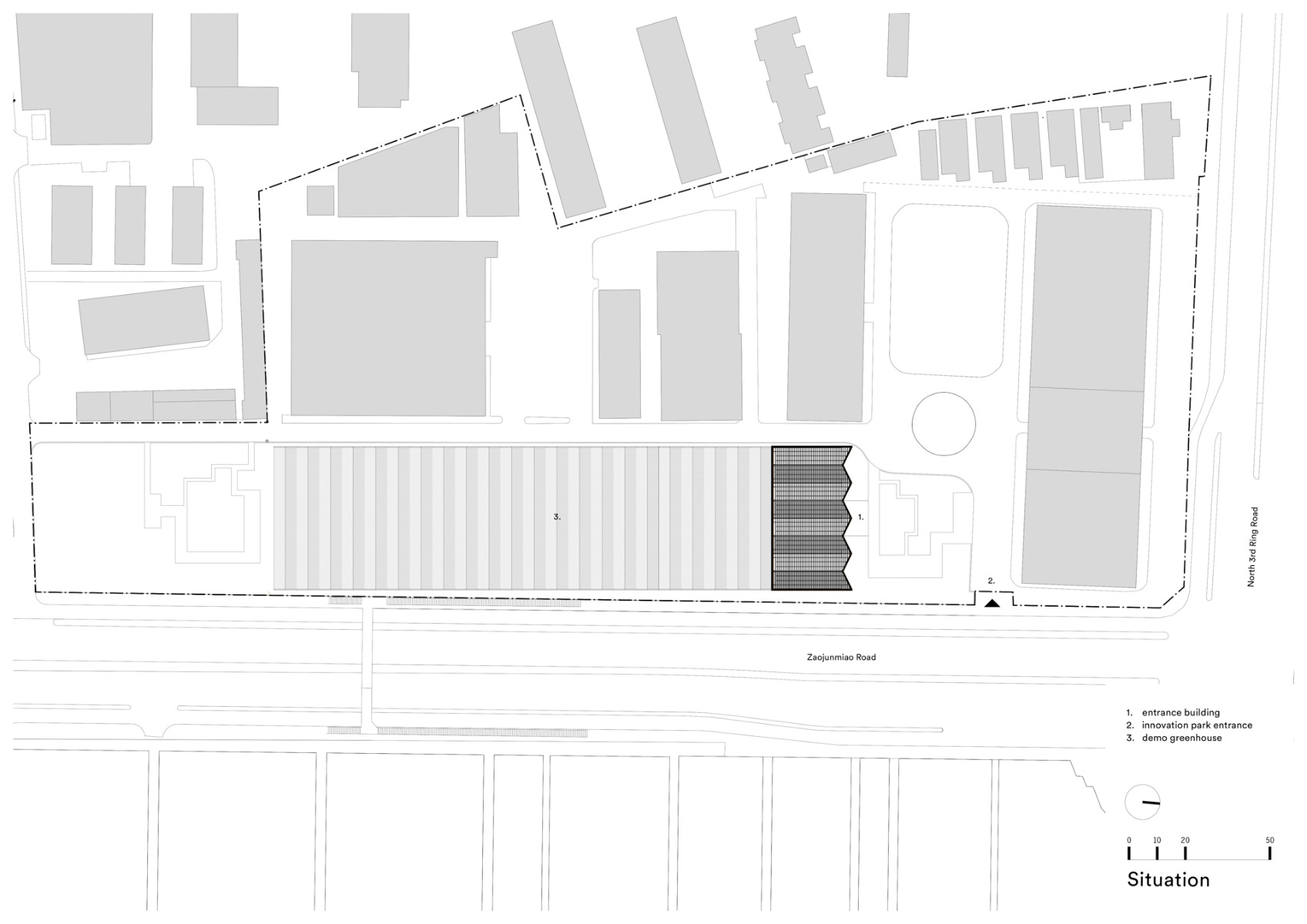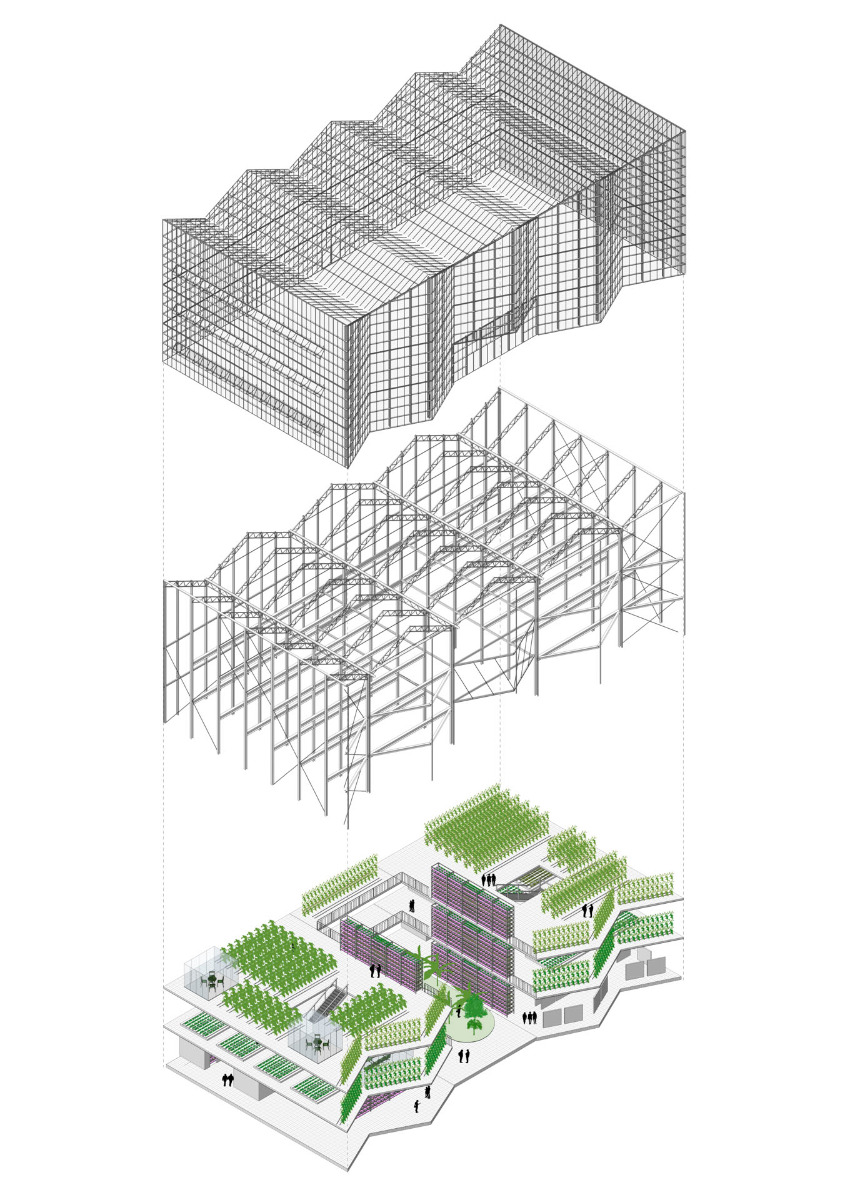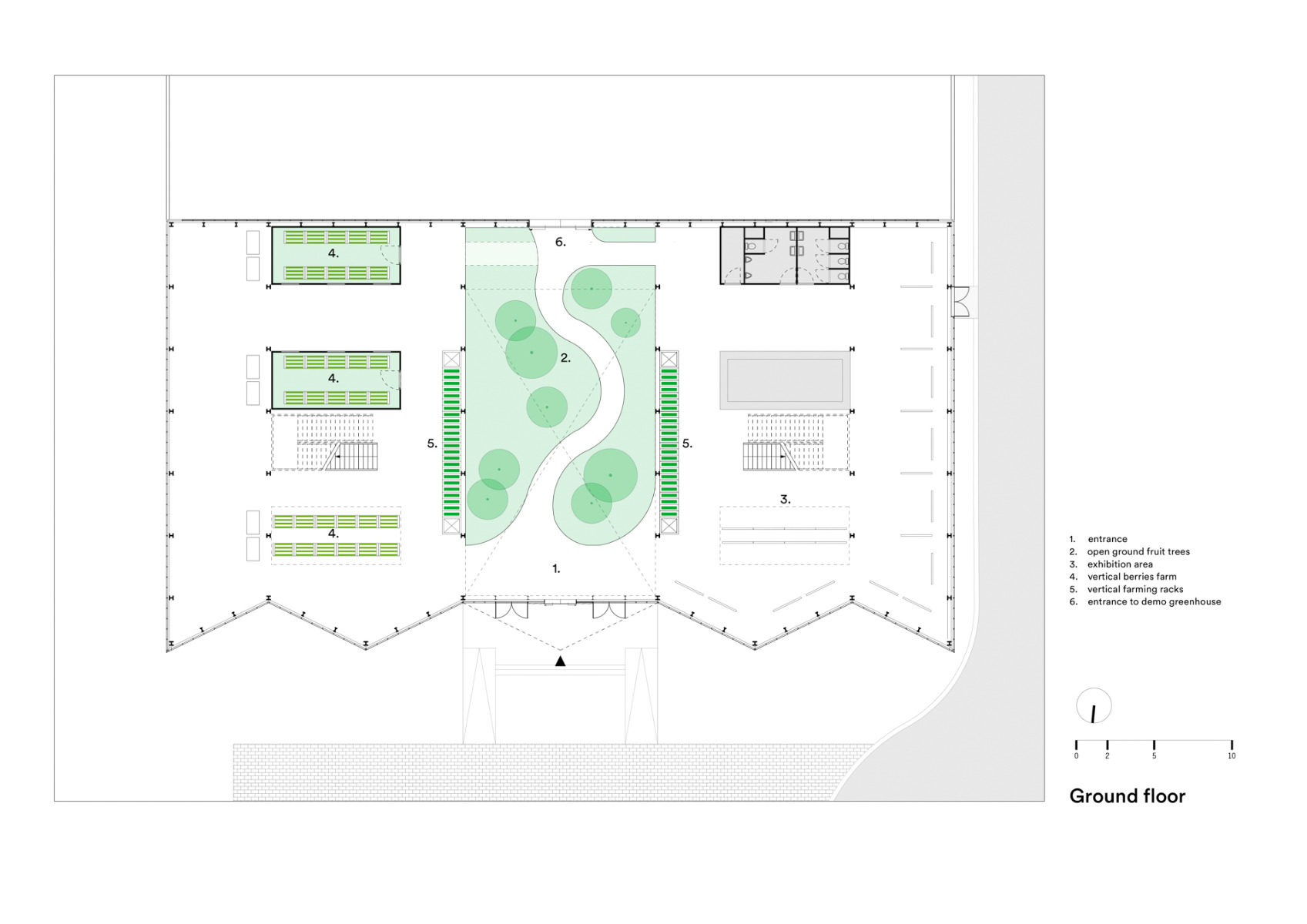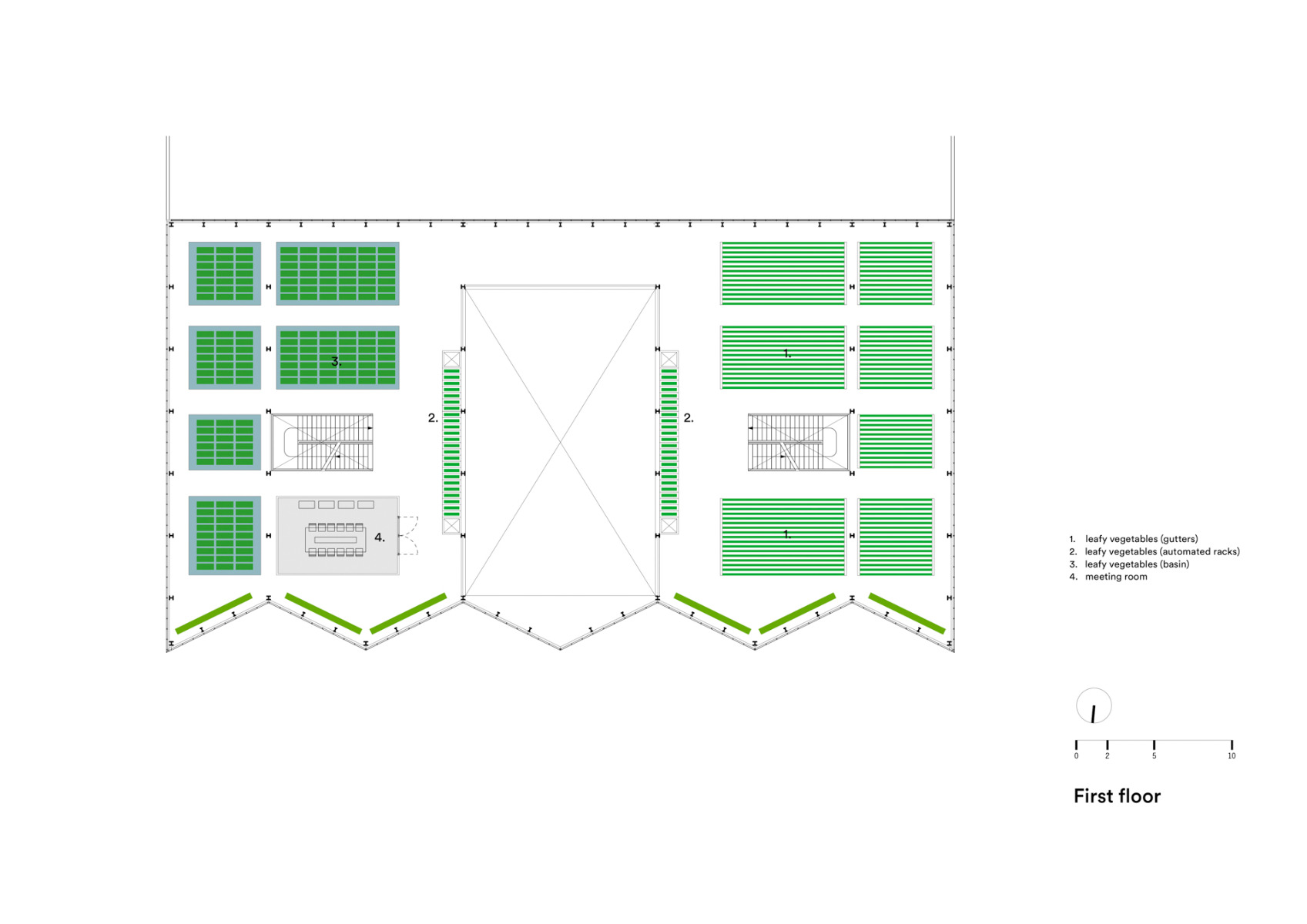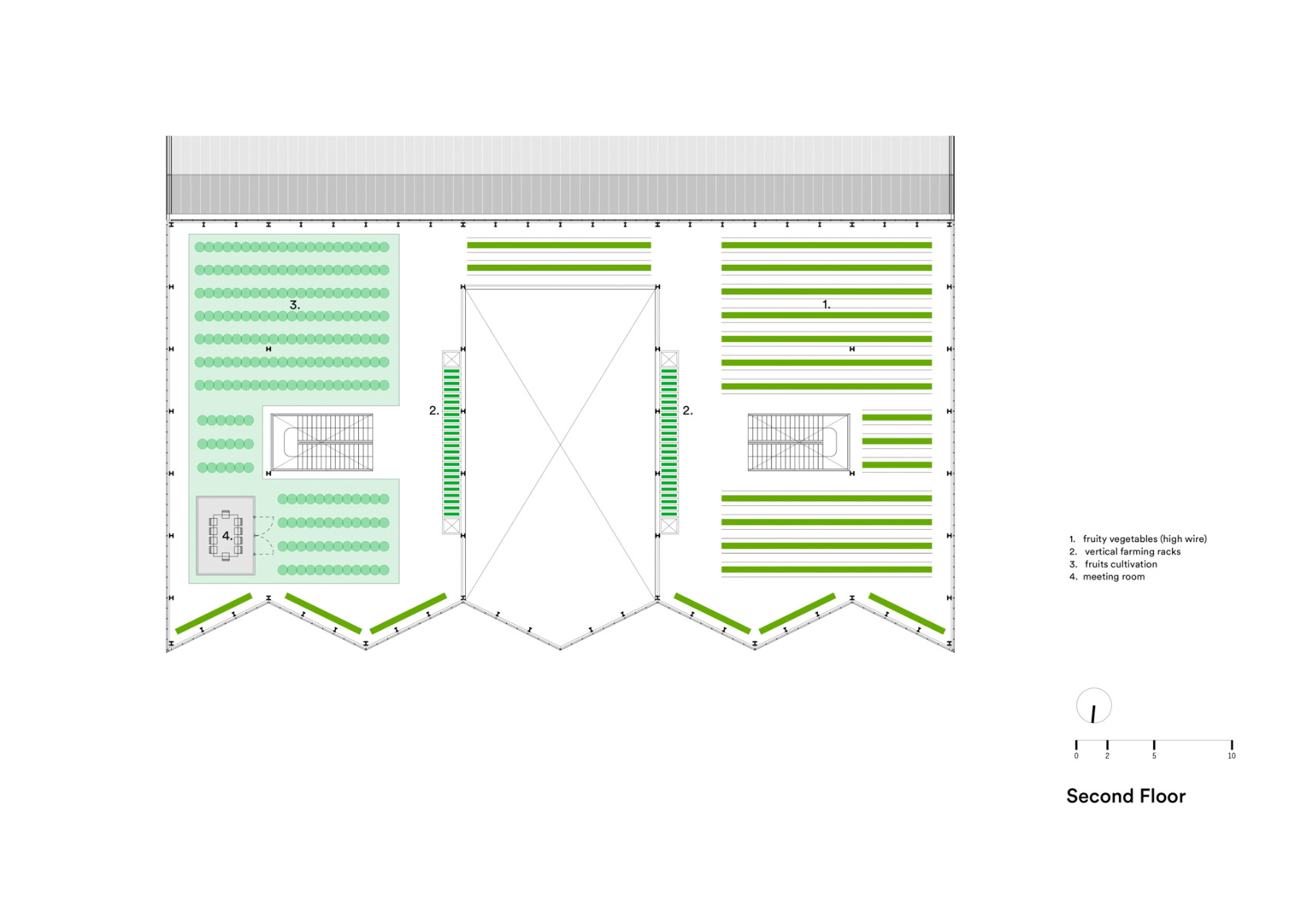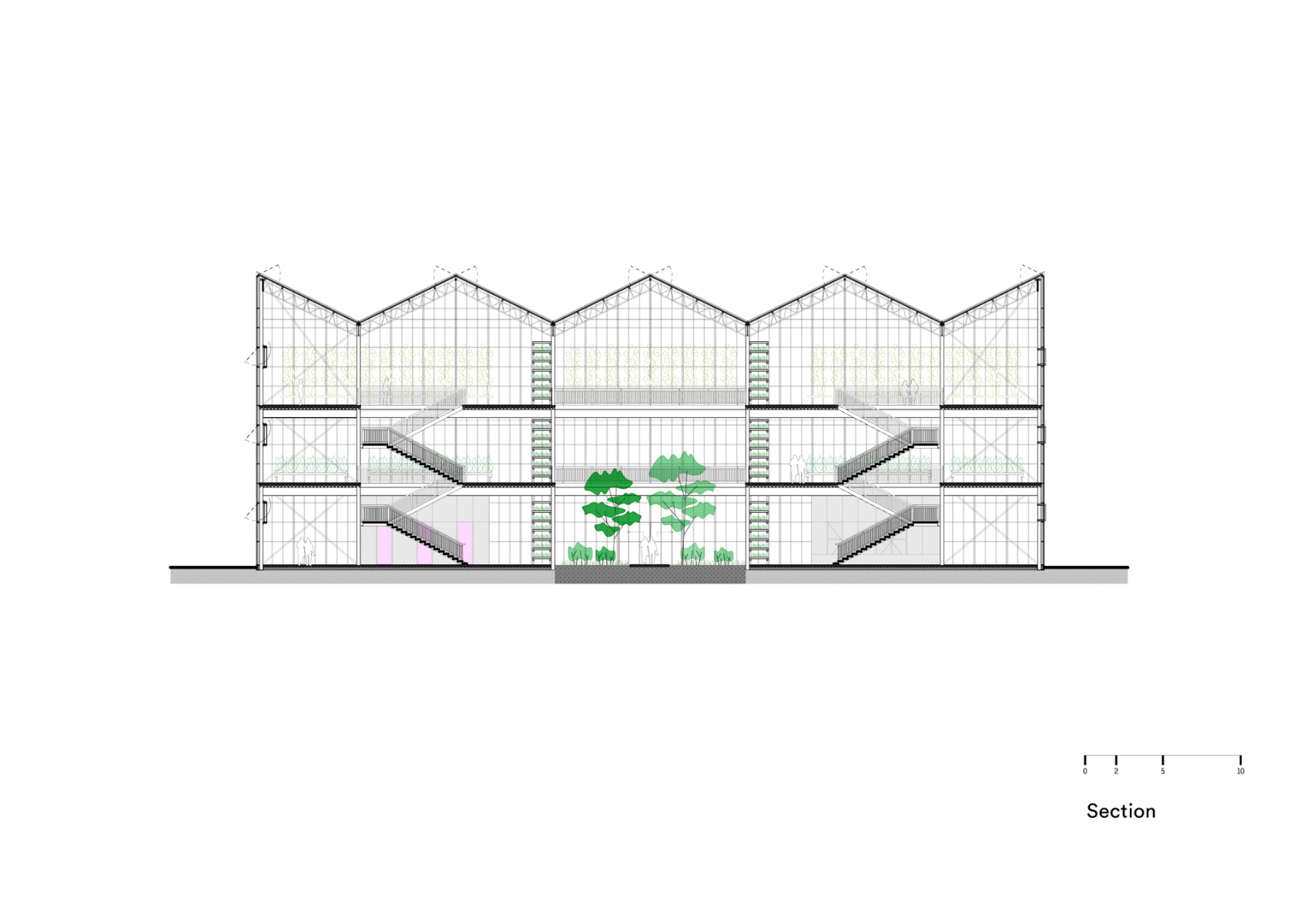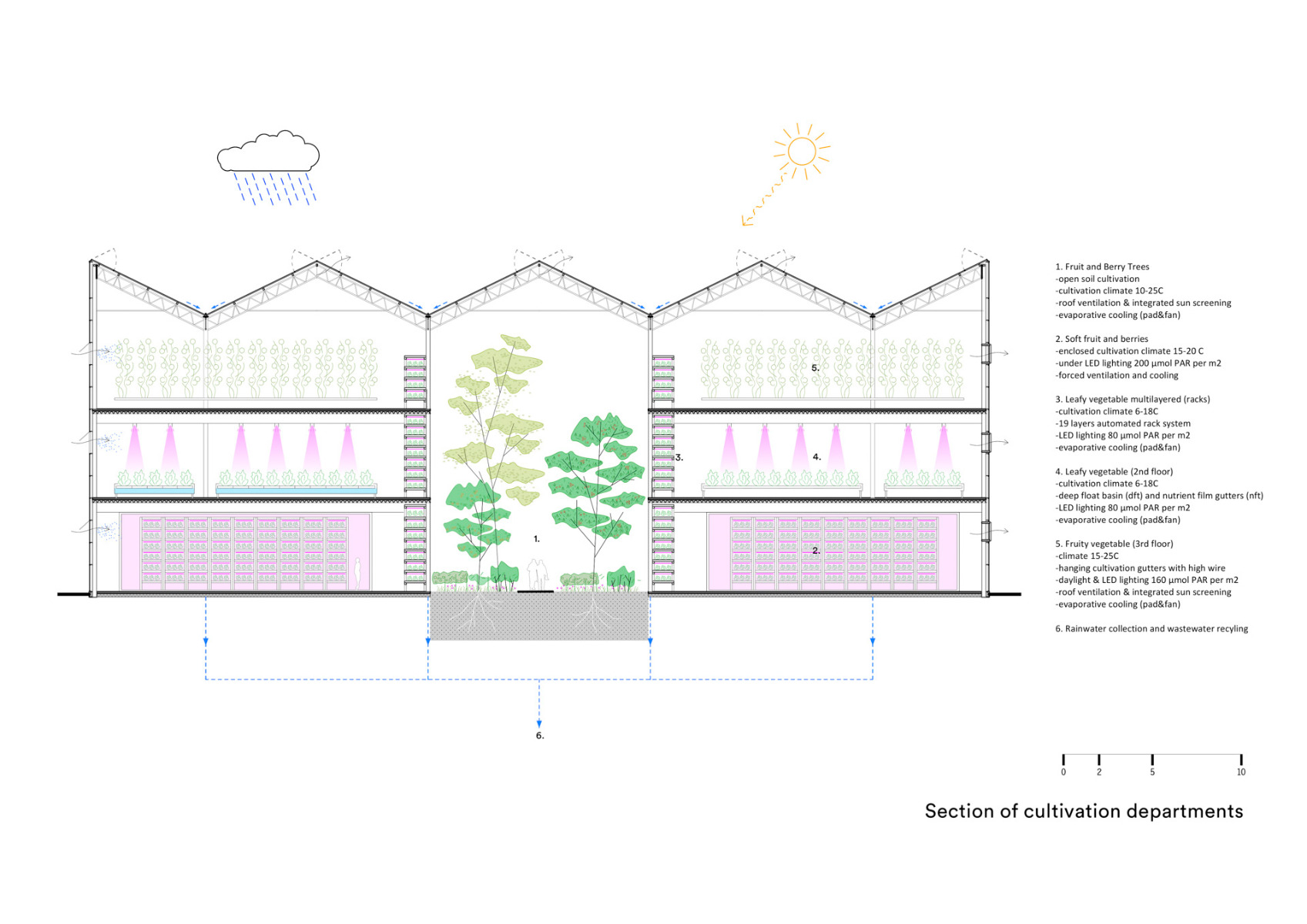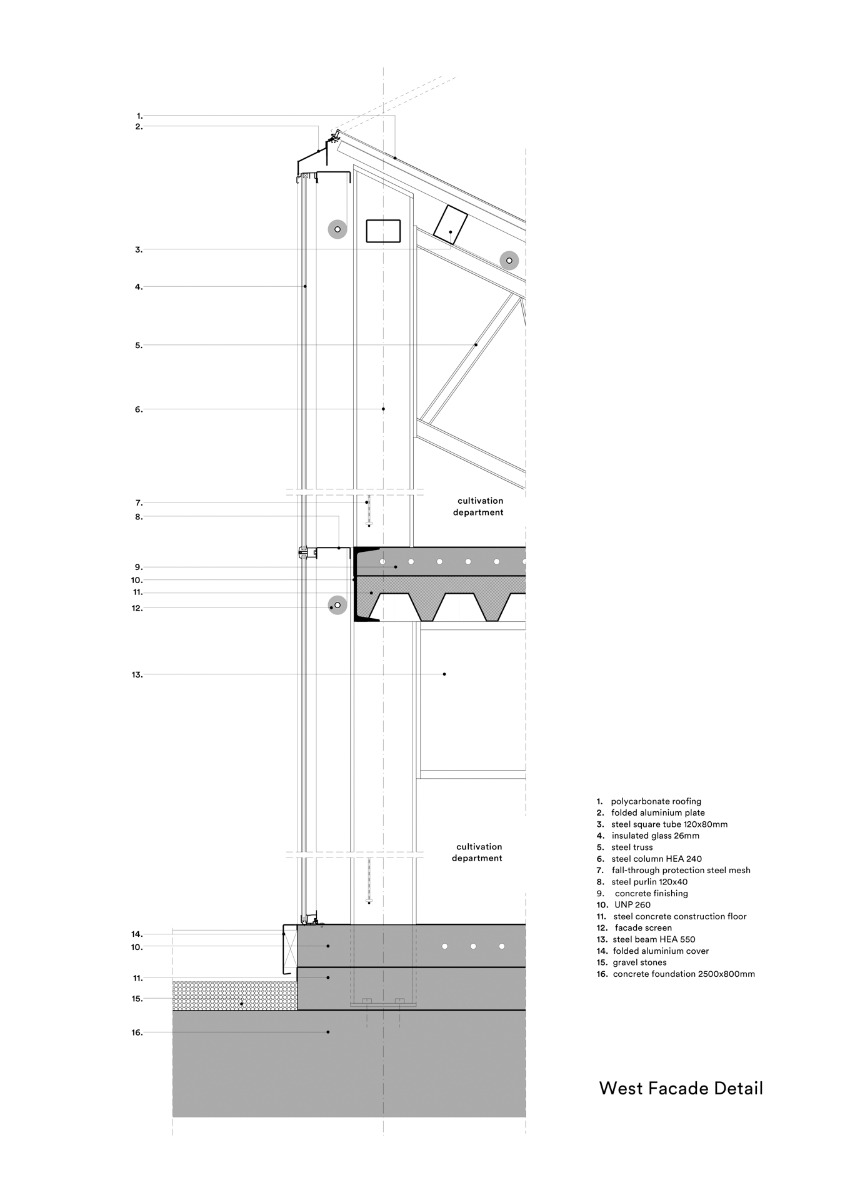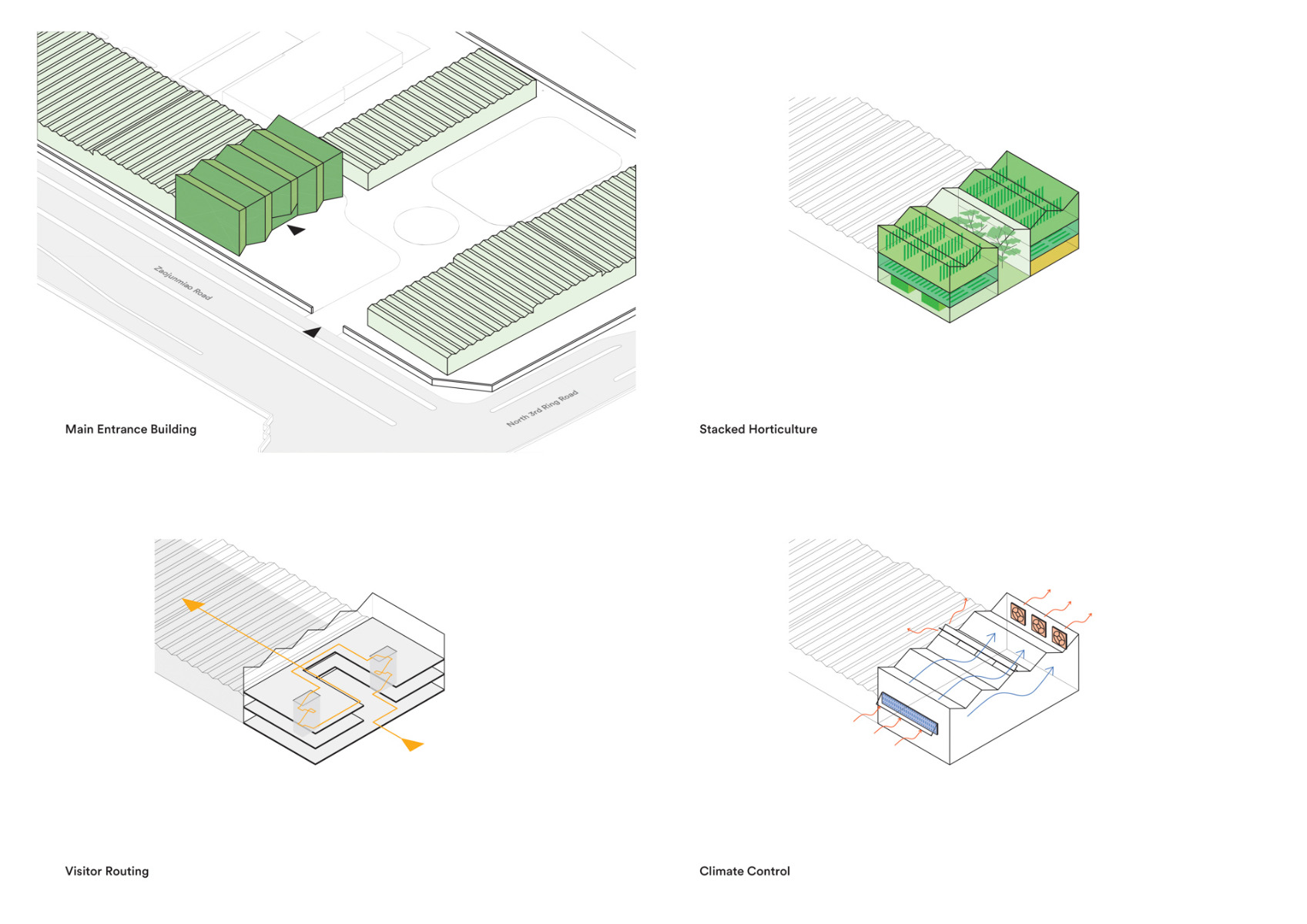Stacked horticulture
Vertical Farm in Beijing

The three-storey entrance building of the Vertical Farm has a striking facade of folded glass. © Weiqi Jin, Beijing
Local greens for the megacity
The Vertical Farm was erected on the campus of the Chinese Academy of Agricultural Sciences in Beijing. On the western edge of the city, farmers sow, plant and nurture fruit and vegetables over an area of 3500 m² inside the urban farm, which provides residents of the Chinese capital with local produce without long supply chains. A further benefit of the location: resources that might be useless or even toxic to the city, such as nutrients from waste water, can find meaningful application as fertilizer for horticulture.


The centre of the hall opens up over all three levels. In this area, fruit trees are rooted in the open soil. © Weiqi Jin, Beijing
Diverse farming methods beneath a single roof
The pellucid bay windows of the delicate construction of steel and glass offer unobstructed views into the tiered vegetable garden. The public are invited to visit the complex and follow an educational pathway to find out about the various aspects of modern, urban agriculture. The Vertical Farm is accessed via the middle of the five bay windows. At the centre of the building, an atrium opens up over all levels.


In the attic, tomatoes and cucumbers grow in daylight. © Weiqi Jin, Beijing
Indoor gardening
In the building-high indoor garden, large fruit trees are rooted in the open soil. To the left and right, leafy vegetables thrive on shelves that extend to the first upper level. In the outer zones of the ground floor, various types of berries ripen under LED light, while tomatoes and cucumbers grow in hanging planting troughs in the rooftop greenhouse. This ensures that they are exposed to sufficient daylight and natural ventilation. “In terms of lighting and temperature conditions, combining the requirements of the various farming methods in an interior environment was a great challenge”, says Dutch architect Jago van Bergen.


Thanks to the LED lighting, by night the Vertical Farm gleams in magenta. © Weiqi Jin, Beijing
Sustainable use of water and energy
Not a single drop of water is wasted. Residual water is collected and reused. The consumption of energy is equally sustainable: climate control in the form of natural ventilation and cooling takes place according to the principles of evaporation. Moreover, passive heat generation from the sun and the residual heat from the LED lighting are used to heat the building.
Architecture: Van Bergen Kolpa Architecten
Client: AgriGarden
Location: Innovation Park Beijing (CN)
Structural engineering: Ammerlaan constructions, Hebucon
